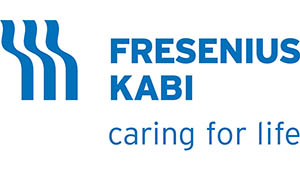 German healthcare company Fresenius (ETR:FRE) said today that it bought U.S. generic drugmaker Akorn Inc. (NSDQ:AKRX) for $4.75 billion and Merck KGaA’s biosimilars business.
German healthcare company Fresenius (ETR:FRE) said today that it bought U.S. generic drugmaker Akorn Inc. (NSDQ:AKRX) for $4.75 billion and Merck KGaA’s biosimilars business.
Since chief executive Stephan Sturm took the helm in June, the company has made takeovers a key part of its strategy. Fresenius bought a Spanish hospital chain for 5.8 billion euros in September last year.
The company’s latest acquisitions show an attempt to move into new dosage forms and therapeutic areas for its Kabi unit, which develops generic infusion drugs and blood transfusion supplies.
Akorn brings with it a portfolio of ophthalmic drugs, ear drops, nasal sprays, respiratory drugs and medical creams.
“We are putting Fresenius Kabi on track for an even more broadly based and strong sustainable growth beyond the current decade,” Sturm said, according to Reuters.
Fresenius said it will pay $34 per Akorn share and take on the company’s $450 million in net debt, bringing the deal to a total pricetag of $4.75 billion. The company plans to finance the deal with a mix of euro- and dollar-denominated debt instruments.
“Joining our 2 companies and product portfolios will strengthen and diversify both businesses,” Fresenius Kabi U.S. president & CEO John Ducker said in prepared remarks. “Akorn brings to Fresenius Kabi specialized expertise in development, manufacturing and marketing of alternate dosage forms, as well as access to new customer segments like retail, ophthalmology and veterinary practices. Its pipeline is also impressive, with approximately 85 ANDAs filed and pending with the FDA and dozens more in development.”
“Fresenius Kabi is an excellent fit for Akorn, strategically and culturally,” Akorn’s CEO, Raj Rai, added. “Fresenius brings to Akorn the strength and resources of a global leader with an experienced U.S. team and an outstanding record of growth and award-winning service in the United States. We look forward to working with Fresenius Kabi on this next phase of our growth. When the transaction closes, we will strive to ensure a smooth transition for our employees and customers.”
Fresenius’ separate deal to buy Merck KGaA’s biosimilar branch is a move that Fresenius previously rejected. Biosimilars are copies of biologic drugs made from living cells and the company has avoided the space in the past.
“We’ve always said the regulatory environment would have to clear up before we invest in biosimilars. A lot has been done in that area in the recent past,” Sturm told Reuters.
Fresenius said it will pay €170 million ($185.5 million) upfront in the Merck deal and up to €500 million ($545.7 million) in milestone payments contingent upon drug delelopment targets, since none of Merck’s biosimilars have yet launched. Merck is eligible for single-digit percentage royalties on sales.
The company said it expects 1st revenues towards the end of 2019 and that is is prepared to invest up to 1.4 billion euros to build up the new business through 2022.
Material from Reuters was used in this report.

